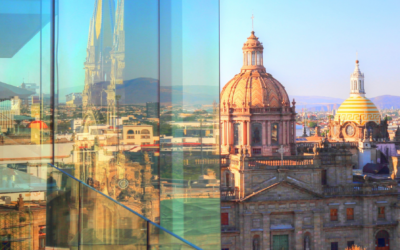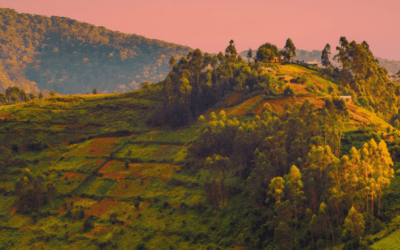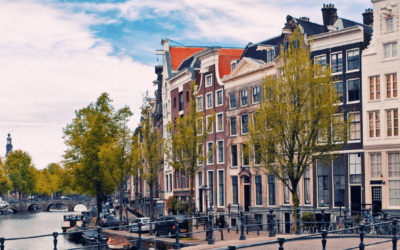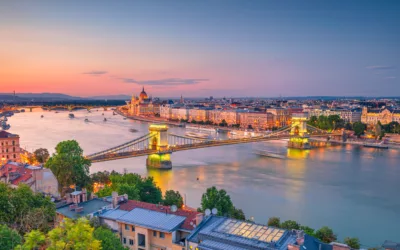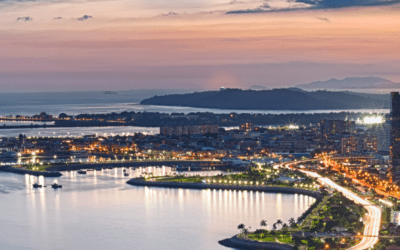There are a few similarities between the United States and Thailand, not only because the country’s name means “The Land of the Free” but also because of the similar imperiousness and police state mentality that Thailand exudes.
There are plenty of more livable cities in Southeast Asia, whether you’re looking for business opportunities, cheap food, or an overall cheap cost of living.
Of course, not everyone will agree with this point of view. But even the most Thailand-loving expats and perpetual travelers have become more concerned about living in Bangkok or even in the country’s smaller cities. Here are a few reasons why.
Would you like more of our hand-picked insights on global investments, citizenship and residency, real estate, tax strategies, and diversified living? Sign up for our Weekly Rundown.
At Nomad Capitalist, we create holistic strategies for high-net-worth individuals, from billionaires and celebrities to everyday entrepreneurs. We’ve helped over 1,500+ clients successfully create their holistic strategy.
Government Crackdown on Tourists
No More Visa Runs
The Thai government certainly isn’t the United States or the European Union when it comes to efficiency in tracking people down. However, that doesn’t mean that the anti-tourist sentiment isn’t present in the government. “Visa runs” are something many digital nomads and backpackers who have lived in Thailand as tourists are familiar with.
Most Western citizens get thirty days in Thailand without a visa if they arrive by air or fifteen days if they arrive by land. For years, immigration officials were perfectly content with tourists crossing over the border to Cambodia, Malaysia, or even Myanmar for the day to reset the clock on their visas. That has changed.
Since 2018, the government has enforced its rules against unlimited border runs. Presently, you can stay in Thailand for up to 30 days at a time with the option of leaving and returning only three times.
You could face a ban for one year for “abusing” the process. The Thai government does not want people moving to its country using our flag theory principles, and they have ramped up enforcement.
Taxes for Expats
Spend more than 180 days in any country that assesses income tax, and chances are you’ll be on the hook for some tax. Western countries tend to count your days like a hawk in order to extract maximum tax, while many other countries are more lax.
While Thailand has little in place in the way of an enforcement mechanism to actually target expats who use companies outside of Thailand to conduct business and earn a living, that doesn’t mean the government isn’t rattling the saber and suggesting that even the much-maligned long-term tourist should be paying income tax to Thailand.
In general, both residents and non-residents of Thailand are assessed on income derived from sources in Thailand. Residents are also subject to Thai tax on foreign-sourced income, but only if that income is remitted to Thailand in the same year it is received.
Police State
When moving to Bangkok, many expats first observe how much of a police presence there is. With patdowns being somewhat normal, it is just one clear sign that Thailand is headed in the wrong direction. Southeast Asia is generally known as a peaceful place with little police presence.
Living in Malaysia, you almost never even see the police, and even immigration authorities are extremely easy to deal with.
Thailand, on the other hand, is famous for its coups and periods of martial law. Again, the Thai military isn’t exactly as scary as a US tank rolling down your street, but the fact that one government isn’t as scary as another doesn’t mean their intentions are any less controlling.
During the 2014 martial law, expats complained about the curfew in Bangkok, during which they literally couldn’t be out past a certain hour. It’s not exactly the freedom most expats are looking for.
Weaker Economy
Bangkok isn’t a particularly cheap place to come and start a business, and opportunities in Thailand just aren’t as strong as you will find in some of its neighboring countries. In fact, one of the biggest advantages of Bangkok is that it is deemed “more livable” by all foreign investors making their money in neighboring Cambodia and Myanmar.
Although the economy has rebounded, thanks to domestic demand and tourism recovery, compared to its neighbors Malaysia, Vietnam, and the Philippines, its economic growth is on the low side.
The laid-back mentality, combined with an anti-foreigner, anti-capitalist government, will never lead to any sort of economic dominance.
Like everywhere, there are, of course, both pros and cons in Bangkok and Thailand, and in recent times, it has become the soft of Panama of Southeast Asia with lots of different ways to get residency.
Thailand has long been popular for expats. It offers a great lifestyle, has excellent weather, and is close to great places in Asia. For example, you can keep your money in Singapore, and it’s just a flight away. Meanwhile, you live in lower-cost Thailand.
There are now options for digital nomads, remote workers, long-term residences, and opportunities for wealthy pensioners.
Thai Elite Visa, you pay a fee to get access to up to ten years, along with numerous benefits. You are basically paying a flat fee to live there. As of October 1st, 2023, this program is set for a radical overhaul, including significant price hikes.
So you’ve got more investment options and more immigration options to come into the country if you’re planning an open bank account, making an investment, or buying a home.
Are you a digital nomad? Or would you like a residence permanent in each part of the world?
If you want a Plan B option for your back pocket without any requirement to go there, Thailand could be an interesting option. Don’t hesitate to contact our team, Nomad Capitalist, and take the first step towards broadening your opportunities offshore.





